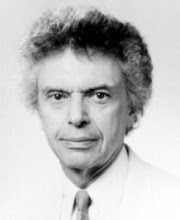Reflections About Classical Adlerian Depth Psychotherapy: Theory, Practice, and Life
A vigorously optimistic and inspiring approach to prevention and treatment, Classical Adlerian Depth Psychotherapy balances the equally important needs for individual, optimal development and social contribution. With a solid foundation in the original teachings and therapeutic style of Alfred Adler, it integrates the self-actualization research of Abraham Maslow. For more information, visit our web site at http//www.Adlerian.us
About Me

- Name: Henry T. Stein, Ph.D.
- Location: Bellingham, Washington, United States
Classical Adlerian psychotherapist and training analyst. Director of the Alfred Adler Institute of Northwestern Washington, offering distance training in Classical Adlerian psychotherapy. Tel: (360) 647-5670. Email: htstein@att.net
Saturday, December 19, 2009
In the December 21st issue of Newsweek, an article "Red Mind, Blue MInd," by author Sharon Begley, refers to a study at the university of Illinois by researcher Chris Fraley, wherein he claims that the personality traits of voters seem to be the most influential factor in their voting decisions, more so than age or gender. It would appear that people tend to chose candidates who they perceive as being most like them. Perhaps installing mirrors in voting booths would improve voter turnout.
Monday, December 14, 2009
Reading on the Run - Kindle and Palm Tungsten
Keeping up with many of the fascinating articles on the Internet, about two of my favorite recreational topics, The Socratric Method and Sherlock Holmes, is a challenging task. To faciliate portable versions of these articles, I generally follow this sequence. When I find a web page with content worth of study, I save it in Surfsaver, under an appropriate category. Opening the article in Surfsaver, I can then convert copies to .htm and .txt formats.
For Kindle compatibility, I send the .htm copy to Kindle.com for conversion to .azm format, which I then transfer to my Kindle. This permits reading, highlighting, and noting on the device. The highlights and notes can also be transferred back to my desktop computer.
For even greater (pocket) portability with the Palm Tungsten C, on my desktop I convert the .txt file to .pdb format using a free program DropBook. Then I transfer those files to the Pilot, reading highlighting, and noting the articles with eReader.
With added flash memory, The Kindle and Palm can hold thousands of articles and books. The Kindle is larger and can also download books, articles, newspapers, magazines, and blogs. The Pilot is smaller, but has a backlit screen for reading in low-light situations. Neither has the sensuous feel of a real book, but their portability and convenience are outstanding, especially when you are traveling or have some waiting time for an appointment.
For Kindle compatibility, I send the .htm copy to Kindle.com for conversion to .azm format, which I then transfer to my Kindle. This permits reading, highlighting, and noting on the device. The highlights and notes can also be transferred back to my desktop computer.
For even greater (pocket) portability with the Palm Tungsten C, on my desktop I convert the .txt file to .pdb format using a free program DropBook. Then I transfer those files to the Pilot, reading highlighting, and noting the articles with eReader.
With added flash memory, The Kindle and Palm can hold thousands of articles and books. The Kindle is larger and can also download books, articles, newspapers, magazines, and blogs. The Pilot is smaller, but has a backlit screen for reading in low-light situations. Neither has the sensuous feel of a real book, but their portability and convenience are outstanding, especially when you are traveling or have some waiting time for an appointment.
Tuesday, December 01, 2009
Nearly a Century Later, Biology Catches Up With Alfred Adler
From The New York Times, November 30, 2009
We May Be Born With an Urge to Help
.It has taken biology nearly a century to catch up with Alfted Adler!
We May Be Born With an Urge to Help
What is the essence of human nature? Flawed, say many theologians. Vicious and addicted to warfare, wrote Hobbes. Selfish and in need of considerable improvement, think many parents.
But biologists are beginning to form a generally sunnier view of humankind. Their conclusions are derived in part from testing very young children, and partly from comparing human children with those of chimpanzees, hoping that the differences will point to what is distinctively human.(See http://www.nytimes.com/2009/12/01/science/01human.html?em for complete article)
The somewhat surprising answer at which some biologists have arrived is that babies are innately sociable and helpful to others. Of course every animal must to some extent be selfish to survive. But the biologists also see in humans a natural willingness to help
.It has taken biology nearly a century to catch up with Alfted Adler!

